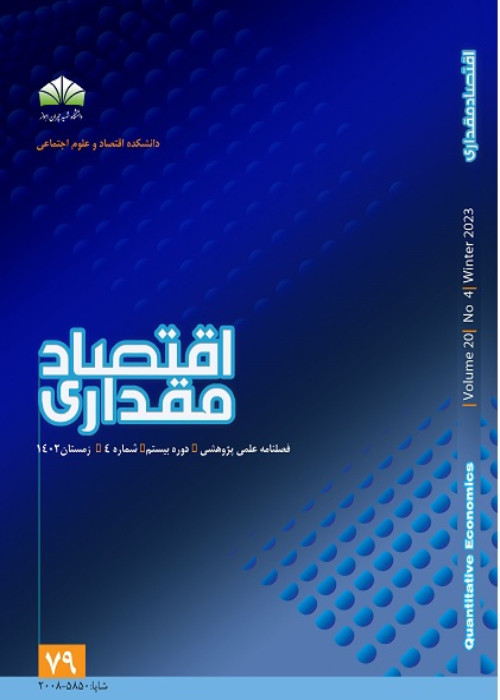Investigating the Impact of Inflation Expectations on Consumption in Iran: Adaptive Expectations versus Rational Expectations (Kalman Filter Approach)
The continuous growth of the price level in Iran indicates the prices trend is rising. Short-term inflation dynamics and cyclical interaction with actual economic variables are central in macroeconomics, especially monetary policy analysis.
METHODOLOGY
Given the importance of inflation expectations, this study examines how it is formed by considering comparative and rational inflation expectations. Since the relationship between inflation expectations and consumption has an actual application in determining economic policies, this relationship is examined during the period 1367: 1 to 1395: 4 by considering the logarithm of consumption, logarithm of income, and logarithm of inflation as the research variables. All data sets used in this study are first-order, meaning that they only need to be differentiated once to be stationary. Because among the various consumption models, Friedman has played an essential role in introducing expectations into consumption theory and has talked about hot money. His approach has been used in the model. To model invisible variables such as rational inflation expectations, space-state models that allow unobservable variables to be used both in estimating the model and estimating them in the models are used. In this regard, the Kalman-filter algorithm was used, a powerful recursive method for optimal predictions of invisible variables and efficient estimates of the parameters of space-state models based on mathematical hope. The partial adjustment method has been used to model adaptive inflation expectations. For consistent estimation, methods that consider the endogeneity of variables should be used. Also, because the variables of collaborative research are of the same order, if there is no co-integration relationship between them, their differential form should be used. According to Granger's theorem, there will be an error correction if there is a co-integration relationship between the variables. Proving the endogeneity of associations related to expectations in the economic framework and therefore due to the existence, we estimate the error correction model with the GMM method.
The results show that the effect of rational inflation expectations on long-run consumption in the Iranian economy is positive and significant. Thus, with a one percent increase in expected inflation, consumption will increase about 6 percent, but there is no significant relationship between rational expectations and consumption in the short term. The effect of comparative inflation expectations on consumption is also positive and significant. Thus, a one percent increase in comparative expected inflation will lead to an increase in consumption of 2 percent. Because in the case of comparative expected inflation, a positive relationship between expected inflation and consumption is confirmed, so that the elasticity of consumption to expected inflation is 2%. In other words, a 1% increase in comparative expected inflation will lead to a 2% increase in consumption.
In the practical aspect of this research, it can be said that since Iran's economy is in a state of stagflation, (1) Managing inflation expectations through an efficient communication framework with economic factors can transform the retrospective pricing system into a futuristic one and reduce the actual costs of deflation. (2) The policymaker should take measures so that the inflation expectations of the society are not intensified because this issue can stimulate inflation by intensifying consumption and increasing its total demand. Then inflation expectations spread in this direction which has happened regularly in recent years. (3) Also, due to the impact of consumption changes on aggregate demand and aggregate demand on corporate investment decisions, the attention of monetary policymakers and the central bank on controlling inflation expectations is needed more than ever due to its direct impact on consumption. In this regard, policymakers should be careful in implementing their policies not to exacerbate inflation expectations. For example, what policies to enforce (or not) and what policies to implement (or not) play a role in forming positive or negative policies destructive inflation expectations. However, in this regard, expert economic advisors should be consulted on any policy. 4- Also, anti-inflation policies that control inflation have a favorable effect on inflation expectations and are therefore recommended.
- حق عضویت دریافتی صرف حمایت از نشریات عضو و نگهداری، تکمیل و توسعه مگیران میشود.
- پرداخت حق اشتراک و دانلود مقالات اجازه بازنشر آن در سایر رسانههای چاپی و دیجیتال را به کاربر نمیدهد.


